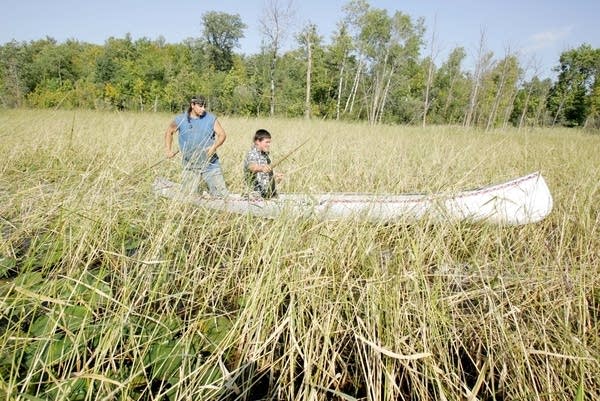Planned wild rice harvest to test 1855 treaty rights

Joe Hoagland, left, pushes a canoe through a wild rice bed in White Earth, Minn., as 14-year-old Chris Salazar learns how to harvest the rice by knocking the grain off the stalks with two sticks. A group calling itself the 1855 Treaty Authority is planning a wild rice harvest outside Nisswa Thursday that is outside the bounds of state law and DNR policy -- but that the group says is within the bounds of a 19th century treaty with the U.S.
Jim Mone | Associated Press
Go Deeper.
Create an account or log in to save stories.
Like this?
Thanks for liking this story! We have added it to a list of your favorite stories.


